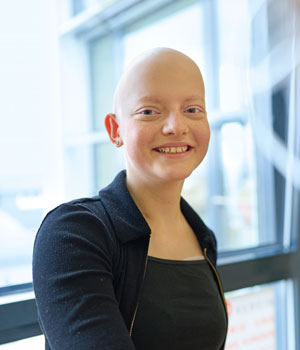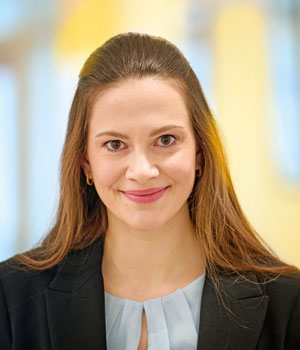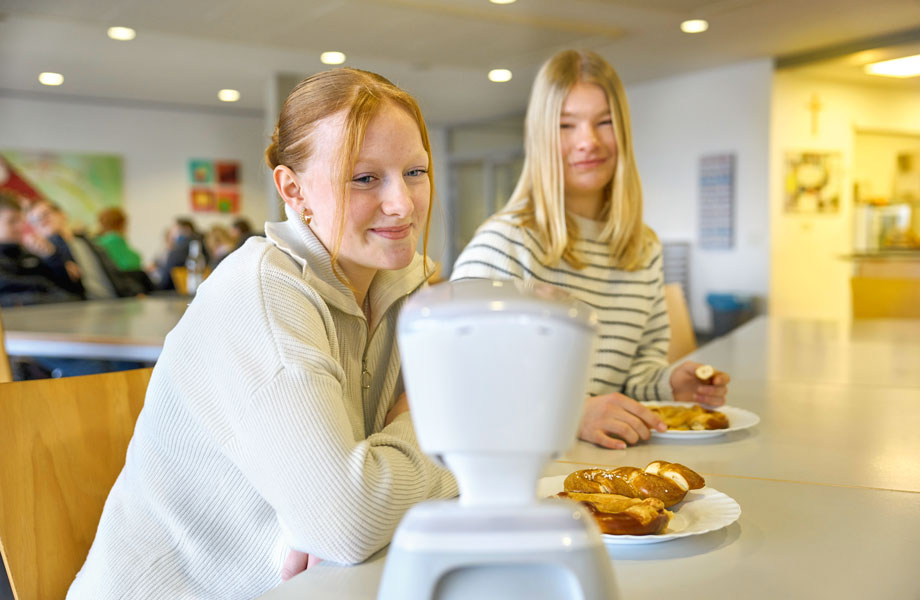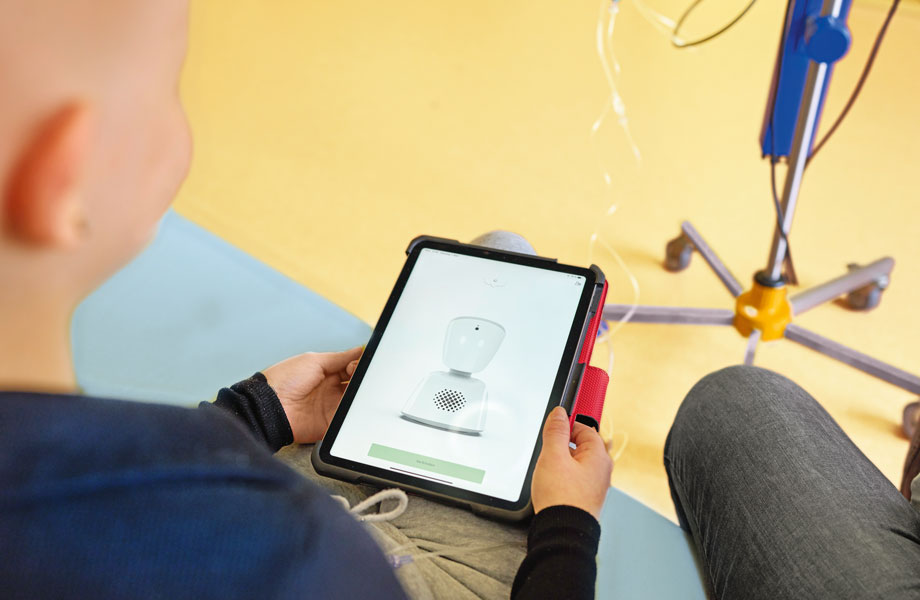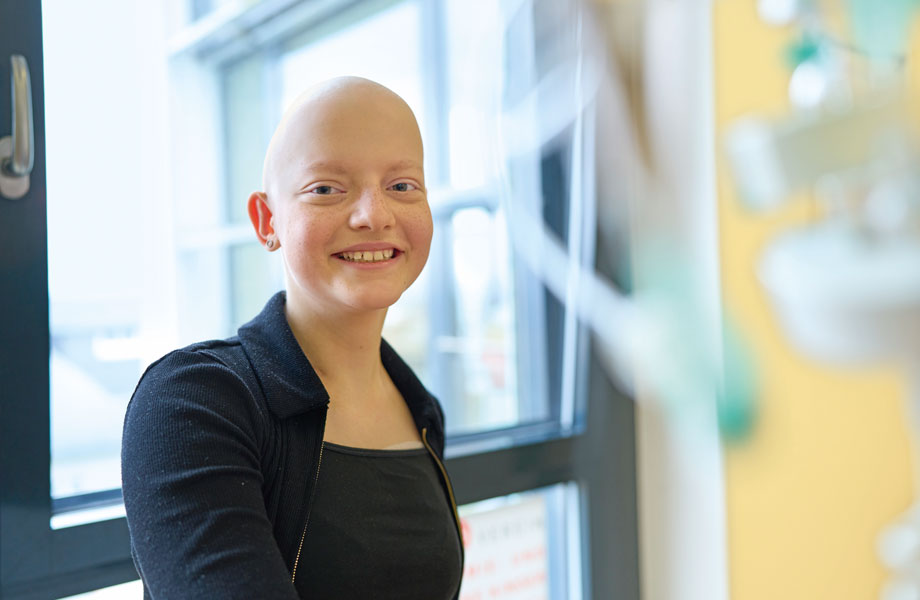Text Alexandra Pfeifer ––– Photography
The three of them sit at the long table in the school cafeteria with a warm cheese pretzel. Lea and Clara giggle. Everything is just as usual, well almost. Because their friend Fiona isn’t there. She’s been in hospital for quite some time. And yet: She is “present in class instead of not being there at all”.
The school gong signals that the break is over. Lea gently tucks “Fiona” under her arm and hurries back to the classroom. Third lesson, biology. “That’s Fiona’s favourite subject,” the friends say. However, today she looks somewhat pensive. Her glowing eyes are just small, bright pixel dots. And the head emits blue flashes. “That means that Fiona doesn’t want to be talked to at the moment,” Clara explains. "She’s probably not feeling too well.”
ACTUALLY ALMOST AS USUAL
The 15-year-old is in the middle of a course of therapy. Some exhausting months followed, after the doctors had discovered a bone tumour in her left upper arm two years ago. At school, classes went on without her, but the social isolation she experienced was even worse. No cocoa in the cafeteria, no cheese rolls, no break time shared with schoolmates. In fact, Fiona is always on the move. She loves carnival and the dancing that goes with it. Really. The world is at a standstill. Her mother Andrea alone could not compensate for Fiona’s lack of social contacts. “I’m always there to help and advise Fiona,” says Andrea. “But I’m still just her mum. I can’t replace her friends.”
Then finally, 18 chemotherapy sessions later, Fiona had the hope that she had beaten cancer. But it came back. Back to square one. How would Fiona handle the isolation this time round? How is she supposed to make up for the missed school lessons? But this time everything was going to be different – thanks to a donation from the Rittal Foundation.
Shortly after Fiona’s second diagnosis, the Friedhelm Loh Group’s charitable foundation donated two so-called ‘telepresence avatars’ to the Peiper Paediatric Cancer Ward at the Gießen/Marburg University Hospital, where the 15-year-old is being treated. Because Fiona’s condition is largely stable, one of the avatars provided has been going to school on her behalf since the start of the year. It didn’t take a great deal of preparatory work, just a bit of paper and a stable internet connection at both ends. The teachers and classmates quickly got used to their “new classmate”. And now it is perfectly normal to see a 30-centimetre tall robot sitting there in Fiona’s place.
IN AN ABNORMAL SITUATION
“The avatar is charged in the secretary’s office at night, and one of us picks it up before school starts,” Clara and Lea explain. This allows Fiona to get connected directly to the classroom every morning via a live video stream. She can make her presence felt via a flashing light, and she can also ask questions and even whisper to the people sitting next to her; or just listen, as she did today. Then it simply switches to blue for a short time. “There are some days when Fiona only participates passively in the lessons. But that’s no problem at all,” says her teacher, Lisa Stoy. “She can still listen and gets taught the school’s subject material.” This is worth a lot, especially in the minor subjects, since the home schooling that Fiona gets between the therapy blocks only covers content from the main disciplines. Without the avatar, a lot of school material would fall by the wayside – and Fiona might even have to repeat the class.
NOT LOSING TOUCH
Yet it’s not just about the subject matter. It is just as important for Fiona simply to be there. And larking about during breaks instead of just cramming her way through the subjects. Above all, she is strengthened by the prospect of returning to class once the period of therapy is behind her. But until then, the robot is her link to the outside world. “My friends take great care of the avatar,” says Fiona with a broad grin. And when they are not in the classroom, they also carry “Fifi” across the school grounds. During sports, the ninth year pupil can watch the others sweating or set the mood in music lessons as a “living” disco light. During job application training, she makes plans for her professional future.
Nevertheless, the 15-year-old still looks forward to the day when she can return the avatar. That will be in May, if everything goes well. Clara and Lea are already counting the days, too. “We’re quite certain that Fiona will be back again. After all, we’ve been through all this together before.” The little robot will then be moved to another child’s place. And Fiona will then be in the next grade.
